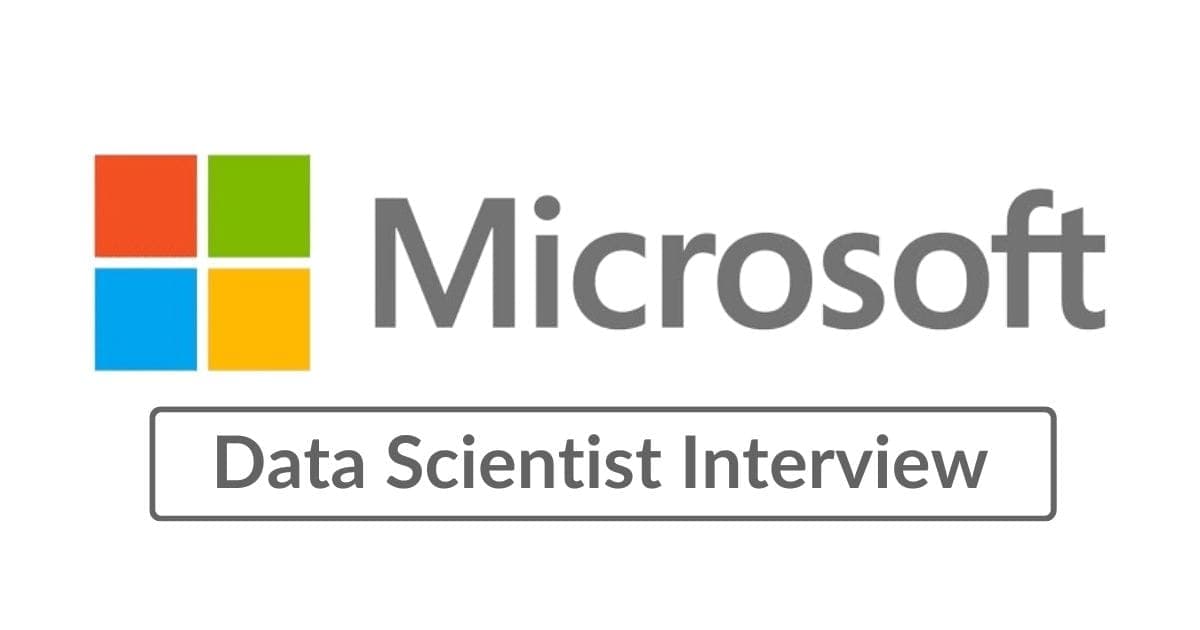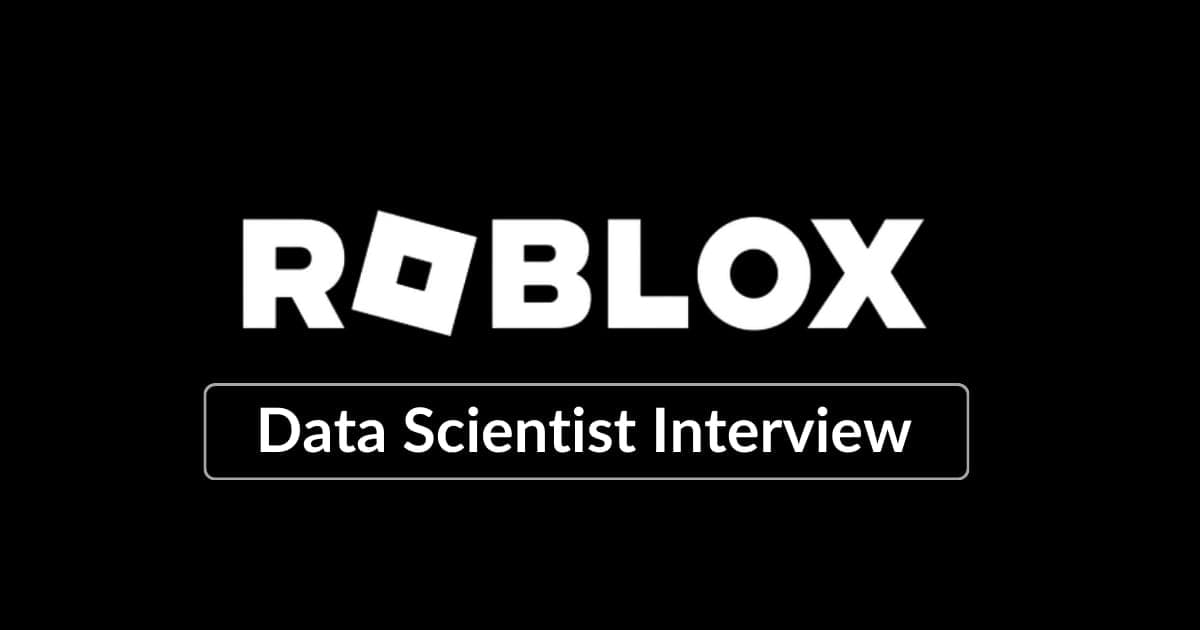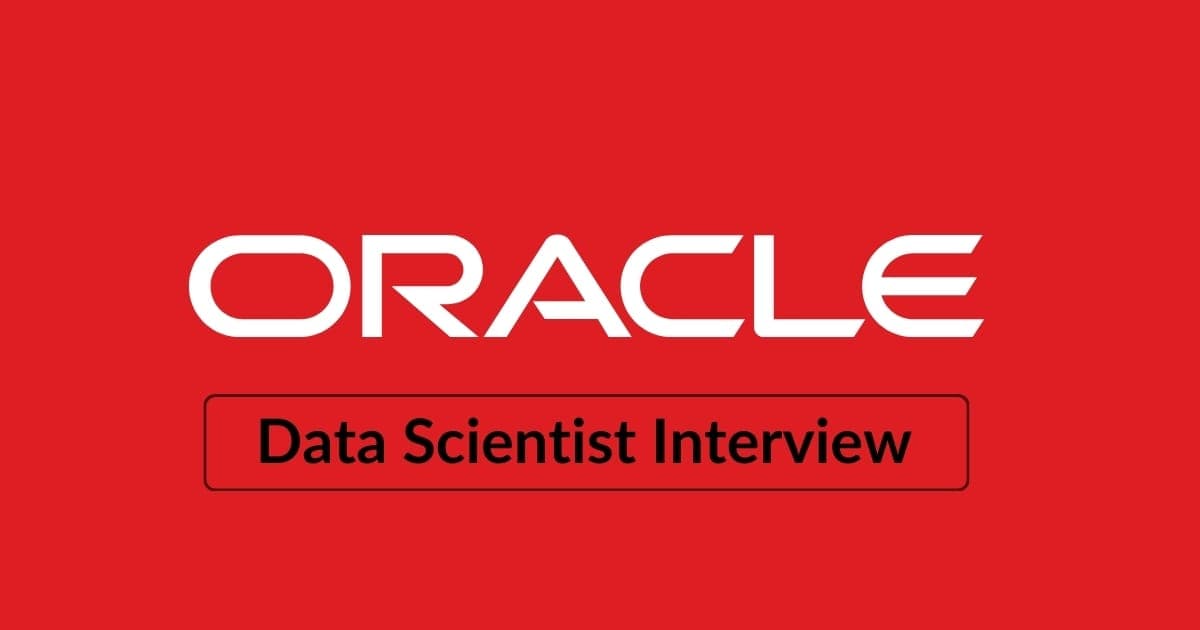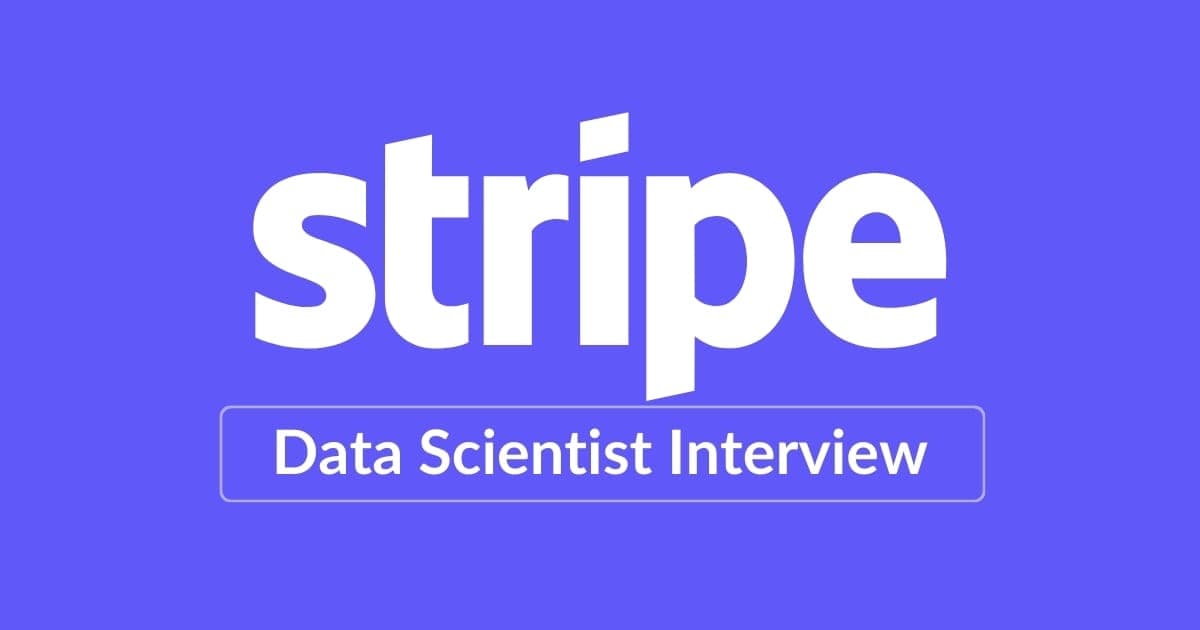Are you gearing up for a Data Scientist interview at Microsoft? This comprehensive guide will walk you through the interview process, key focus areas, and tips to help you excel. Whether you're a seasoned data professional or just starting your journey, understanding Microsoft's interview structure can give you a significant advantage.
We will explore the question areas, uncover tips, and provide you with a detailed list of interview questions you can use to ace the interviews!
Let's get started👇
1. Microsoft Data Scientist Job
1.1 Role Overview
At Microsoft, Data Scientists play a pivotal role in advancing innovation across products like Bing, Azure, and Office through the power of data-driven insights. This role combines technical expertise, analytical thinking, and a collaborative mindset to address complex challenges and deliver impactful solutions. As part of the Core Search and AI team, you’ll work on groundbreaking projects that shape the future of search and AI technologies.
Key Responsibilities:
- Develop machine learning models to optimize search engine capabilities and user experiences.
- Design and analyze experiments (e.g., A/B testing) to improve product features.
- Solve large-scale AI challenges, such as generating document summaries, improving search relevance, and enhancing personalization.
- Collaborate with cross-functional teams, including engineers, scientists, and program managers, to deliver innovative solutions.
- Ensure data quality and develop tools to democratize information across the organization.
Skills and Qualifications:
- Proficiency in Python, SQL, and statistical methods.
- Strong knowledge of traditional search engine metrics such as precision, recall, and Mean Reciprocal Rank (MRR).
- Experience with large datasets and familiarity with modern machine learning techniques.
- Advanced degrees (Master’s or PhD) in a quantitative field are preferred but not required.
- Exceptional problem-solving and communication skills to distill insights into actionable strategies.
1.2 Compensation and Benefits
Microsoft offers competitive compensation packages that include base salary, stock options, and performance bonuses. Here’s an example breakdown of average compensation for Data Scientist roles at different levels:
| Level Name | Total Compensation | Base Salary | Stock (/yr) | Bonus |
|---|---|---|---|---|
| Data Scientist I | $177K | $159K | $9.9K | $8.1K |
| Data Scientist II | $191K | $151K | $21.5K | $18.1K |
| Senior Data Scientist | $223K | $165K | $38K | $20K |
| Principal Data Scientist | $312K | $199K | $66K | $46K |
| Principal Data Scientist | $548K | $210K | $229K | $28K |
Tips for Negotiation:
- Research market benchmarks for data scientist roles in your region.
- Be open to discussing total compensation, including stock options and bonuses, alongside the base salary.
Microsoft’s compensation structure is designed to reward high performance and attract top talent. For more information, visit Microsoft’s careers page.
2. Interview Process and Timeline
Average timeline: 4-6 weeks
2.1 Resume Screen (1-2 Weeks)
The first step in Microsoft’s Data Scientist interview process is a resume review. Recruiters assess your experience to ensure it aligns with the role’s requirements. This stage is highly competitive, so crafting a standout resume is essential.
What Microsoft looks for:
- Proficiency in Python, SQL, and statistical analysis.
- Experience working with large datasets and machine learning models.
- Projects demonstrating innovation and collaboration.
Tips for success:
- Highlight your work with advanced search technologies or AI models.
- Showcase impactful projects, particularly those involving experimentation, predictive modeling, or causal inference.
- Use keywords like "data-driven insights," "SQL," and "machine learning."
- Tailor your resume to reflect Microsoft’s mission and values, emphasizing your contributions to team success.
2.2 Recruiter Phone Screen (20-30 Minutes)
This initial call with a recruiter focuses on your background, skills, and fit for the Data Scientist role. The recruiter will also provide an overview of the interview process and timeline.
Example questions:
- Can you describe a project where you used data to enhance user experiences?
- What tools and techniques do you use for analyzing large datasets?
- How do you approach solving ambiguous data problems?
Prepare a concise summary of your experience, focusing on key achievements. Be ready to discuss your familiarity with Microsoft products and how your skills align with the role.
2.3 Technical Screen (45-60 Minutes)
The technical screen evaluates your problem-solving skills and technical expertise. It typically includes live coding exercises and a product case discussion, conducted via an interactive platform like CodeSignal or CoderPad.
Focus areas:
- SQL: Write queries involving joins, aggregations, subqueries, and window functions.
- Machine Learning: Explain concepts like model evaluation metrics and the bias-variance tradeoff.
- Product Case Analysis: Use data to generate actionable insights and recommend improvements.
Practice 2 to 3 data manipulation problems up front when you are starting preparation with Microsoft. Aim to crack a problem within the 7 to 8 minute time limit.
2.4 Onsite Interviews (3-5 Hours)
The onsite interview at Microsoft typically involves 4-6 rounds with team members, including data scientists, managers, and cross-functional partners. Each round assesses a specific skill set.
Key components:
- SQL and Coding Challenges: Live exercises to evaluate your ability to manipulate and analyze data effectively.
- Real-World Data Problems: Solve complex business scenarios involving machine learning models, A/B testing, or statistical analysis.
- Product Cases: Define key metrics, analyze product performance, and recommend improvements based on data insights.
- Behavioral Interviews: Discuss past experiences to showcase teamwork, adaptability, and alignment with Microsoft’s values.
Preparation tips:
- Review core data science concepts, including statistical testing, model evaluation, and causal inference.
- Understand Microsoft’s mission and products, and be ready to discuss how your skills can contribute to its goals.
- Practice explaining your solutions in a structured and logical manner, emphasizing actionable outcomes.
For personalized guidance:
Consider mock interviews or coaching sessions to simulate the experience and receive tailored feedback. This can help you fine-tune your responses and build confidence. Also, consider joining the Data Scientist Interview MasterClass for structured prep!
3. Interview Questions
3.1 Product Case Questions
Product case questions at Microsoft evaluate your ability to analyze business problems, define metrics, and propose actionable solutions using data-driven approaches.
Example Questions:
- What metrics would you track to evaluate the success of Bing’s new AI-driven search feature?
- How would you design an experiment to test the impact of personalized search results on user engagement?
- What data would you analyze to identify factors driving user churn on Microsoft Teams?
- If Microsoft wanted to expand Azure’s AI services into a new market, what factors would you consider to assess potential demand and profitability?
- How would you propose optimizing Office 365 subscription renewals using data insights?
3.2 Machine Learning Questions
Machine learning questions assess your knowledge of algorithms, model building, and problem-solving techniques applicable to Microsoft’s products.
Example Questions:
- Explain the bias-variance tradeoff and how it applies to building a ranking model for Bing search.
- How would you design a machine learning model to recommend documents in SharePoint based on user behavior?
- Describe how you would evaluate the performance of a large language model used in Bing’s search engine.
- How would you handle class imbalance in a dataset when building a predictive model for customer churn?
- What features would you prioritize for building a model that predicts Azure resource usage for enterprise clients?
For more interview questions, check out the Machine Learning Interview Guide.
3.3 SQL Questions
SQL questions assess your ability to manipulate and analyze data using complex queries. Below are example tables Microsoft might use during the SQL round of the interview:
SEARCH_LOGS Table:
| LogID | UserID | Query | ClickedLinkID | SearchTime | DeviceType | Duration | Status |
|---|---|---|---|---|---|---|---|
| 1 | 101 | "AI tools" | 201 | 2024-11-20 08:30:00 | Mobile | 5 | Success |
| 2 | 102 | "Azure ML" | NULL | 2024-11-20 09:00:00 | Desktop | NULL | No Click |
| 3 | 103 | "Microsoft" | 2024 | 2024-11-20 10:15:00 | Desktop | 8 | Success |
USERS Table:
| UserID | Name | City | JoinDate |
|---|---|---|---|
| 101 | Alice Wong | Seattle | 2023-01-10 |
| 102 | Bob Smith | San Francisco | 2023-02-15 |
| 103 | Carla Diaz | New York | 2023-03-20 |
Example Questions:
- Search Success Rate: Write a query to calculate the percentage of successful searches for each device type.
- User Engagement: Write a query to find users who conducted more than 5 searches in a single day.
- Average Duration: Write a query to calculate the average search duration for mobile users in Seattle.
- Search Trends: Write a query to identify the top 3 most searched keywords in the last 30 days.
- City-Level Analysis: Write a query to find the city with the highest number of searches tagged as “No Click.”
You can practice easy to hard level SQL questions on DataInterview SQL pad.
Tips:
- Practice writing efficient SQL queries that handle large datasets.
- Focus on joins, aggregations, filtering, and window functions.
- Be prepared to explain your logic and optimization strategies.
- Use platforms like SQL Pad or LeetCode for targeted preparation.
3.4 Behavioral Questions
Behavioral questions assess your ability to work collaboratively, handle challenges, and align with Microsoft’s mission and values.
Example Questions:
- Describe a time you used data to influence a critical business decision.
- How do you prioritize tasks when managing multiple deadlines simultaneously?
- Share an example of a time you had to learn a new skill or technology quickly for a project.
- Tell me about a time you disagreed with a teammate on a data-driven solution and how you resolved it.
- How do you handle constructive feedback in a collaborative setting?
Tips:
- Use the STAR (Situation, Task, Action, Result) method to structure your responses.
- Highlight experiences that demonstrate problem-solving, teamwork, and adaptability.
- Align your answers with Microsoft’s values of respect, integrity, and accountability.
4. How to Prepare for the Microsoft Data Scientist Interview
4.1 Master Microsoft’s Business Model
To excel in product-focused interviews at Microsoft, it’s essential to understand their expansive business model and the diverse products and services they offer. Microsoft operates across several key segments, including productivity software (Office 365), cloud computing (Azure), search (Bing), and gaming (Xbox). Familiarize yourself with how these products contribute to Microsoft’s revenue streams, innovation, and user satisfaction.
Understanding how Microsoft’s ecosystem works will provide valuable context when tackling product and business case questions. For instance, knowing how Bing’s search advertising generates revenue or how Azure drives cloud adoption can give you an edge in product-centric discussions.
4.2 Master Microsoft’s Product Metrics
In addition to understanding Microsoft’s business model, it’s crucial to familiarize yourself with the core metrics that Microsoft tracks for success.
Key Metrics:
- Search Metrics: Precision, recall, Mean Reciprocal Rank (MRR), and Normalized Discounted Cumulative Gain (NDCG) to evaluate Bing search relevance.
- Engagement Metrics: User retention, active usage rates, and click-through rates for services like Teams and Office 365.
- Revenue Metrics: Advertising revenue (e.g., Bing Ads), subscription renewal rates, and Azure resource consumption.
- Operational Metrics: System reliability, query response times, and model scalability for cloud services like Azure and Bing.
- Gaming Metrics: Xbox user engagement, subscription rates for Game Pass, and in-app purchase trends.
Familiarizing yourself with these KPIs will help you navigate product case questions and demonstrate strong business acumen.
4.3 Align with Microsoft’s Mission and Values
Showcase Microsoft’s core values during both technical and behavioral interviews.
- Microsoft’s Mission: “To empower every person and every organization on the planet to achieve more.”
- Core Values: Respect, integrity, and accountability, with a focus on innovation, collaboration, and inclusivity.
Showcase Your Fit:
Before your interview, reflect on your experiences and prepare examples that align with Microsoft’s mission and values. Highlight times when you innovated, used data to empower decision-making, or collaborated effectively with diverse teams. Demonstrating these qualities will help you answer behavioral questions authentically and showcase your cultural fit.
4.4 Strengthen Your SQL and Coding Skills
Microsoft places strong emphasis on technical rigor during its interviews, making SQL and coding proficiency essential.
Key Focus Areas:
- Joins: INNER, OUTER, LEFT, RIGHT.
- Aggregations: SUM, COUNT, AVG, GROUP BY.
- Window Functions: RANK, DENSE_RANK, ROW_NUMBER.
- Subqueries and Common Table Expressions (CTEs).
Preparation Tips:
- Practice solving SQL problems that simulate real-world data scenarios, such as analyzing user behavior or system performance.
- Brush up on Python for data manipulation and machine learning tasks, focusing on libraries like pandas, NumPy, and scikit-learn.
- Use platforms like DataInterview SQL pad for additional practice!
- Be prepared to explain your logic, optimization strategies, and decision-making process during coding assessments.
4.5 Practice with a Peer or Interview Coach
Simulating the interview experience can significantly boost your readiness for Microsoft’s process. Mock interviews with a peer or coach can help you practice structuring your answers and receive constructive feedback on your responses.
Tips:
- Focus on articulating your thought process clearly, especially during case and technical questions.
- Review common behavioral questions to align your answers with Microsoft’s values.
- Engage with professional coaching services such as DataInterview.com for tailored, in-depth guidance and feedback.
Practicing in an interview-like environment will build confidence, enhance communication skills, and help you anticipate potential challenges during the interview.
5. FAQ
- What is the typical interview process for a Data Scientist at Microsoft?
The process includes a resume screen, recruiter phone screen, technical interviews, and onsite interviews, typically spanning 4-6 weeks. - What skills are essential for a Data Scientist role at Microsoft?
Proficiency in Python, SQL, statistical analysis, machine learning, and an understanding of search engine metrics such as precision, recall, and NDCG are crucial. - How can I prepare for the technical interviews?
Practice SQL and Python coding problems, focus on real-world data analysis scenarios, and review statistical concepts and machine learning techniques. - What should I highlight in my resume for Microsoft?
Emphasize experience with large datasets, machine learning projects, and metrics analysis. Tailor your resume to showcase innovation, collaboration, and alignment with Microsoft’s mission. - How does Microsoft evaluate candidates during interviews?
Candidates are assessed on technical skills, problem-solving abilities, product sense, and cultural fit, with a strong emphasis on innovation and collaboration. - What is Microsoft’s mission?
Microsoft’s mission is "to empower every person and every organization on the planet to achieve more." - What are the compensation levels for Data Scientists at Microsoft?
Compensation ranges from $177K to $548K annually, depending on the role and level. - What should I know about Microsoft’s business model for the interview?
Understand Microsoft’s diverse revenue streams, including productivity software (Office 365), cloud services (Azure), search advertising (Bing), and gaming (Xbox). Familiarity with how these products impact user satisfaction and operational efficiency can help during product case questions. - What are some key metrics Microsoft tracks for success?
Key metrics include precision and recall for search engines, engagement rates for services like Teams, subscription renewal rates for Office 365, and revenue metrics for Azure and Bing Ads. - How can I align my responses with Microsoft’s mission and values?
Highlight experiences that demonstrate respect, integrity, accountability, and a focus on innovation and collaboration. Discuss how you’ve used data to empower decision-making or drive positive outcomes.



